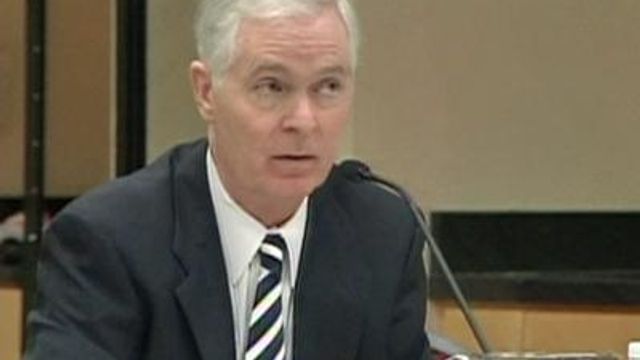Plea could taint Easley's legacy
"A lot of people are also going to look back and say everything was tainted by the conviction," Peace College political science professor David McLennan said.
Posted — UpdatedBut after pleading guilty Tuesday to a single campaign finance violation, he is now a convicted felon.
Peace College political science professor David McLennan said as a district attorney Easley had one of the highest conviction rates ever. As governor, he was the first to really make extensive use of the veto, taking on his own party.
“A lot of people are also going to look back and say everything was tainted by the conviction,” he said.
Easley was fined $1,000 and ordered to provide a DNA sample as a convicted felon, but he avoided any prison time.
“Whatever price he had to pay in the courts doesn’t compare to the price he’s gonna have to pay in terms of his reputation and historical legacy,” said Gary Pearce, former Gov. Jim Hunt's longtime aid and author of his biography.
Pearce believes Easley will never be able to escape this dark shadow.
“In history and in journalism things are boiled down to their essence and the most simple thing,” Pearce said. “I’m afraid for him it’s the first governor and, I hope the only governor, convicted of a felony.”
Easley was convicted of the lowest level felony, but many observers and political insiders believe it's the headlines that people will remember.
Easley entered an Alford plea to certifying a false campaign finance report, which is a felony offense.
In an Alford plea, a defendant pleads guilty, while maintaining his innocence, and admits it is in his best interest to take the plea deal because there is sufficient evidence to find him guilty.
Easley apologized for the erroneous financial reports, and he took responsibility for them.
Bob Hall, of Democracy North Carolina, argued that Easley’s punishment wasn’t severe enough.
“I think it was a puny punishment for all that we have seen him involved in,” Hall said.
Hall argued the former governor should be forced to pay off the $100,000 fine imposed against his campaign by the State Board of Elections.
Hall said Easley pleaded guilty to violating a law, which he actually didn't violate. Hall said historically campaign treasurers are held responsible for reports, not politicians. Hall thinks the totality of the accusations against Easley led to the plea, so he doubts it means prosecutors will now suddenly go after candidates with bad reports.
• Credits
Copyright 2024 by Capitol Broadcasting Company. All rights reserved. This material may not be published, broadcast, rewritten or redistributed.






